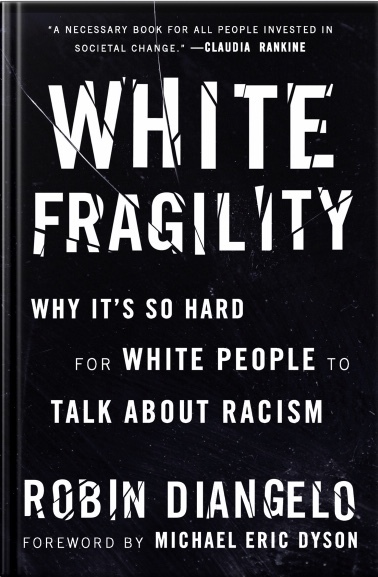White Fragility: A Conversation
Posted on September 1, 2020, by Loretto Community

By Ried Clark and Martha Crawley
Nudged by the Spring Community Group discussion on race, six of us from Group 4 agreed to read and discuss White Fragility. We gathered to discuss the book shortly after George Floyd was murdered in Minneapolis. At that moment, and since, the racist way of being that built this nation began to tear open. What seemed to be a surge of awakening for many has taken hold in our streets, in our media, in our conversations, in our local governments, in our reading and our listening and, most importantly, in our minds and hearts. We have been saturated with the stain of this history, its absence in our education and in our singular and collective consciousness.
“…anti-blackness is foundational to our very identities as white people. Whiteness has always been predicated on blackness. …[T]here was no concept of race or a white race before the need to justify the enslavement of Africans. Creating a separate and inferior black race simultaneously created the ‘superior’ white race: one concept could not exist without the other.” (from White Fragility by Robin DiAngelo).
In our discussion of the book, we expressed that we saw, maybe for the first time, that we are racist. Not because we are “bad” people, but because we are “white” people. DiAngelo tells us, “Whiteness rests upon a foundational premise: the definition of whites as the norm or standard for human, and people of color as a deviation from that norm.”
Some of our group sharing, thoughts, feelings are as follows:
“A new learning for me is to realize that empathy about racism is inadequate; a ‘helping hand’ has been and is an easy excuse for me to avoid doing crucial inner work about my own racism. Another learning I gained is that of feeling how pervasive a truth it is that Blacks do not feel safe living in US society. That fear for one’s safety begins in young childhood and is experienced daily by every generation. We explored the topics of need for individual work, for systemic white racial policy reform and how Loretto might address restitution through educational advocacy.”
“I never thought I was racist. DiAngelo convinced me that all of us born white in this country are racist. We might be kind, considerate, loving racists, but the notion of white superiority is born into us. I have felt saturated by the information that has come my way since George Floyd’s murder. And, I am hungry for more. I feel like fertile ground where seeds of new learning are falling. I want to get this collective sin out of me and our society. I want to realize the prevalence of injustice and do all we can to create a new way.”
“…[R]eading White Fragility helped me understand how white supremacy is not just the actions of some racist individuals, it is how the privilege of being white is embedded in the very fabric of the United States. I knew racism was systemic, but did not want to see myself as racist or part of that system…but how could I not be growing up in this society. I am working to be more antiracist.”
“I thought the book was well done and certainly provoked much thought for me. Racism just seems to be so pervasive in our society and white privilege is also. The conversation that we had was really a good exchange by all of the participants. It’s amazing how much information is available about the issue of racism and how difficult it would be to keep current on all of it.”
“Reading White Fragility was like jumping off the diving board into very deep water, initiating some inner work I now know I need to do. I have a better understanding and a new definition of white supremacy and my part in it. Despite my initial struggle (my fragility) with the ideas, facts and interpretations presented in the book, I am hopeful that I can move along a continuum toward awareness and meaningful action to address my inherent racism. Whew, it was/is not easy!”
“The book was unsettling to me for several reasons. We were/are in the shadow of the killing of George Floyd and so many other Black people at the hands of the police. I had, before, a simplistic view of racism. A racist was an evil, immoral individual who intentionally mistreated people of color. I was raised with “unearned privilege” and have felt empathy for the victims of racism. But, I saw myself as a “good” person, not a racist. We must own our own part in the pervasiveness of racism in this country.”
We left this discussion knowing well we cannot be bystanders. We know we have work to do. As Brian Massingale says, “To create a different world we must learn how this one came to be.” We are beginning that journey.
